My day started with opening the curtains of the Clarion Prague City Hotel to see the farmers market stalls outside in the Vinohrady square.
The plan was move to Radisson Blu Alcron Hotel in the central Prague Nove Mesto district, then walk back uphill and explore more of the Vinohrady district in places I have not visited before. The weather forecast called for a high of 56F and it was 52F at 9:00am, but it said the air felt like 36F.Â
I walked slightly downhill to Radisson Blu Alcron in about 15 minutes wearing a sweater and raincoat. The temperature was nowhere near feeling like the upper 30s without a strong wind and wind chill effect that apparently had passed.
After check-in at Radisson Blu Alcron using my Club Carlson Free Friday and being given a lovely junior suite in the art deco style gem of a hotel, I ditched the sweater and headed back out in a t-shirt and raincoat. There was a possibility for thunderstorms sometime during the day, but the weather looked good overhead near the noon hour.
A poster on a sign column posed a question that gave me a lot to think about as I walked miles around Vinohrady and Žižkov on a Friday autumn afternoon.
Am I what I am thinking about?
A quick read of Vinohrady on Wikipedia and a look at Google Maps revealed large parks and cemeteries in this part of Prague. My destination was visit Franz Kafka’s grave. No particular reason for me to go there, but the pinpoint provided direction to my rambling across the city. It looked to be about a 3 mile direct walk, but I rarely take the direct route to anywhere.
Why is Prague train station named after President Woodrow Wilson?
20th century European history has taken on much more meaning to me over the past two years with my travels through Czech Republic, Slovakia, Poland and the Baltics.
World War I had a major effect on the political identity of nations that were previously part of the Austro-Hungarian Empire. Royalty took a back seat to nationalism in the creation of new countries in the post-WWI years. The Bohemian Kingdom became Czechoslovakia in October 1918. Poland and Yugoslavia also became nation states with the dissolution of the Austro-Hungarian Empire.
Getting around Wilson Station, Prague’s main train station, was the first obstacle. Prague is transected by a few major roads and the rail line.
President Woodrow Wilson is considered a foster father for championing the creation of Czechoslovakia as a democratic republic in 1918 at the end of World War I.
This was the noisy part of my day as I navigated around the train station and array of highways to cross from Nove Mesto into Vinohrady.
Playground and pub at Park Rajská Zahrada Vinohrady, Prague
Funny to think about puritanical American morals and cafe-pubs at a playground, something I have seen in several places around Czech Republic.
In daylight walking through Prague’s parks, it hit me that I have been to Prague three times in 2017 during January winter season, July summer season and now October autumn season. People in many places I travel outside summer season comment on how I really need to come to experience summer. Prague in summer had its positive attributes, like party boats on the Vltava, but I find the cooler times of the year more endearing to my sensibilities.
Park Riegrovy sady, Vinohrady, Prague offers great views of the city.
One of the enjoyable aspects of Prague in summer are the outdoor beer gardens. The outdoor cafes of summer are mostly gone or empty in cool October. The party boats on the Vltava are mostly shuttered.
Prague streets have cadastral district names within 22 municipal district numbers.
I found myself walking in Žižkov – Praha 3. Most of my afternoon was spent walking in Praha 3, across Žižkov to cemeteries and back to the Radisson Blu on a pub crawl through Vinohrady cadastral district.
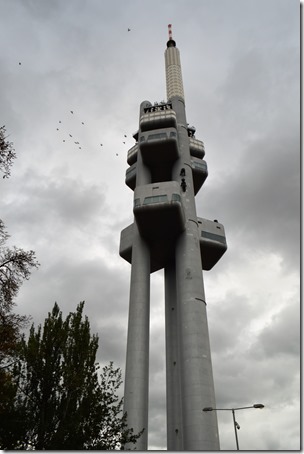
The sound of children playing outside at the international school beside Žižkov Television Tower made me think of days past when I worked for years as an elementary school teacher. I do not miss the noise of children.
My destination was the New Jewish Cemetery in Žižkov, Prague. Next to the Panda school is the Old Jewish Cemetery Žižkov. The cemetery was closed, even though the sign showed the hours of operation on Friday to 15:00, still 2.5 hours away.
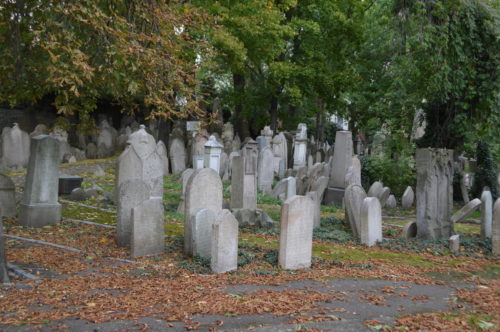
Olšany Cemetery
The largest cemetery in Prague, Olšany Cemetery is where I found myself about 15 minutes later. The immense complex was established in 1680 to accommodate plague victims. Today, there are around 65,000 graves.

Cemeteries attract me when I travel, even though I have no desire to ever be placed in one upon my own death. Olšanské hřbitovy was wonderfully colorful in a full autumn display of dead leaves and grave markers.


I sat on a cemetery bench and ate a hot chicken lunch I purchased from a deli shop just before entering the cemetery. A black and white cat sat on a gravestone about 20 meters away watching me patiently for about 20 minutes. The cat never approached and I ended up eating the entire meal with nothing but chicken bones left. No cat food from me.
Across the street from Olšany Cemetery is the New Jewish Cemetery, where Franz Kafka is buried.
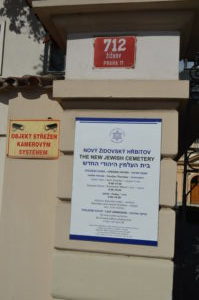
The New Jewish Cemetery was also closed on Friday, Oct 6 even though the sign indicated it was still opening hours.
Enough with hanging out around dead people.
Pub Time
The first pub I passed that grabbed my attention was located on a street with a lot of police action. An entire block of cars were in the process of being towed with several police cars, policemen, a couple of tow trucks and street sweeper moving along the road.
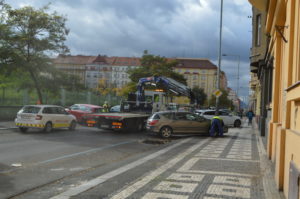
Let’s Meat pub sounded like the kind of place for a filling burger, but I only wanted a beer.
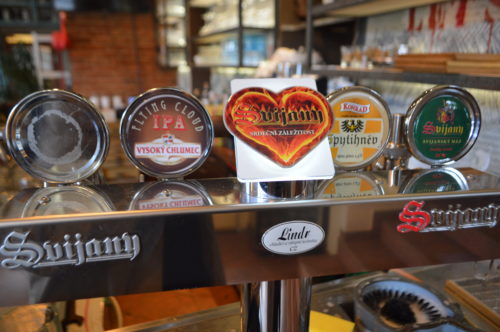
I knew I was in a good environment when I opened the door to hear Lynyrd Skynyrd “Sweet Home Alabama” and a young woman behind the counter singing the lyrics accompanied by a young guy at the bar drinking beer. The singalong continued for Lou Reed’s Walk on the Wild Side, but then there appeared to be a staff shift change with more customers arriving and the music continued unaccompanied with live singers.
Continuing with the cat theme, I dropped by another pub I had noticed several times before near Namastie Miru for a pint of Pilsner Urquell.
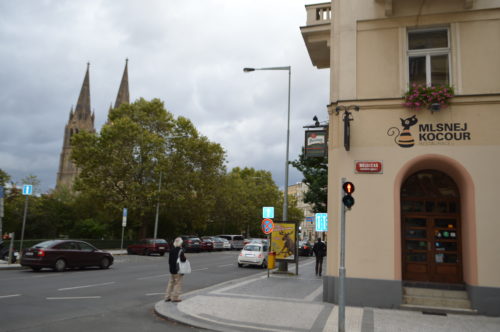
What is Art Nouveau?
Art Nouveau architecture is the prevalent style in residential Vinohrady when the area was built up in the late 19th and early 20th centuries.
I am no authority on architecture. I see pretty buildings in different styles and try to assign a style to what I see. My little bit of research revealed Vinohrady is a sought after district in Prague among expat residents who want to live in Art Nouveau buildings.
Prague is a city for architecture lovers due to a large section of the city maintaining its pre-wars original building styles. Vienna was another city covered in Art Nouveau style, but the destruction of World War II there leaves Prague as the best example of a major city with Central European architecture from the pre-wars period.
I replicated my general walking path route across Prague on Google Maps from Radisson Blu Alcron to New Jewish Cemetery with a mostly different parallel track back to the hotel.
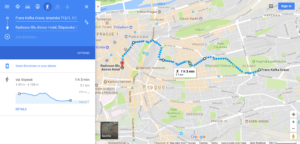
Â


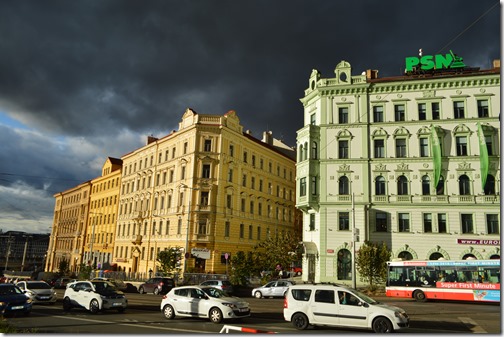
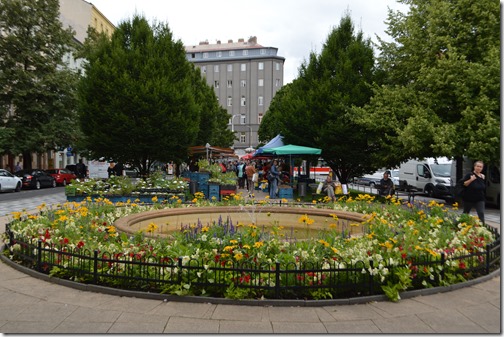
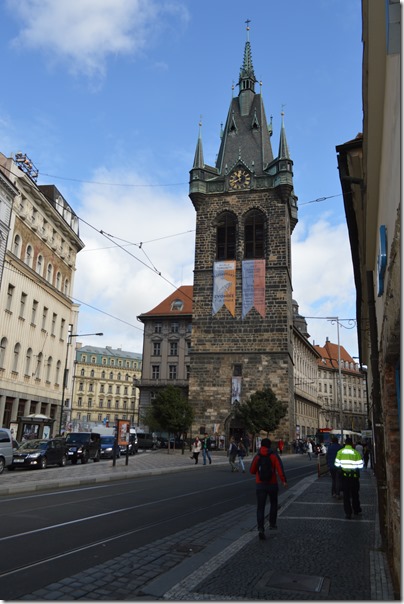
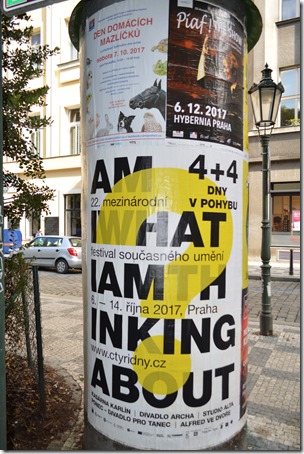
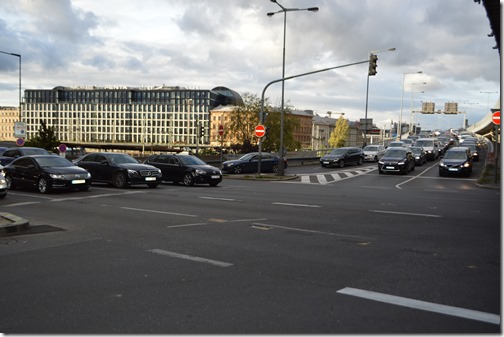
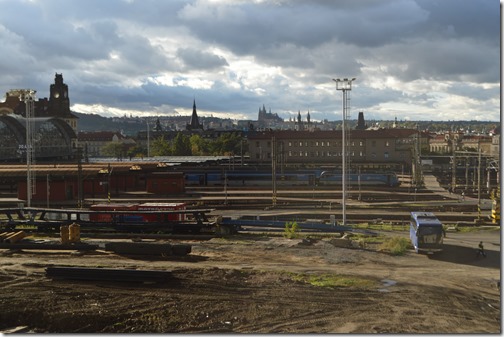
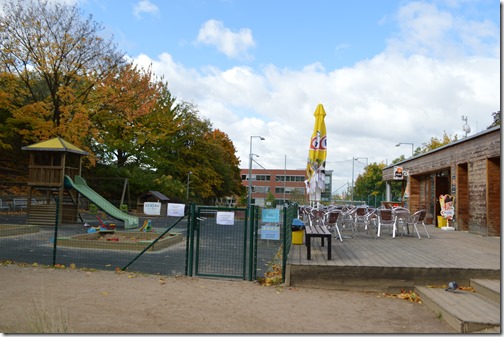
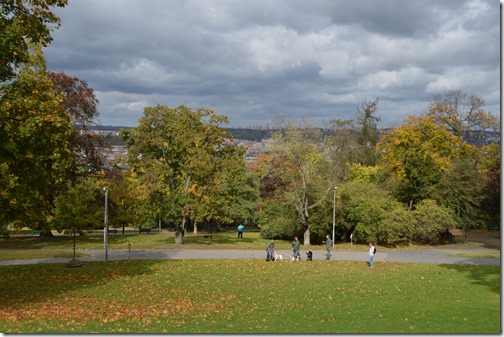
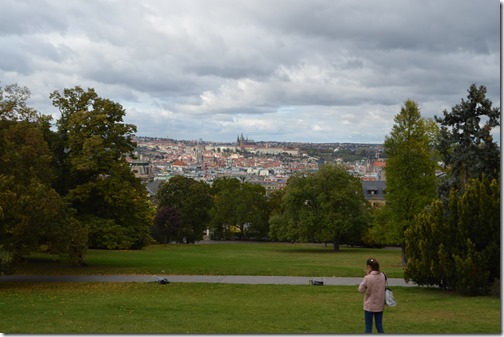
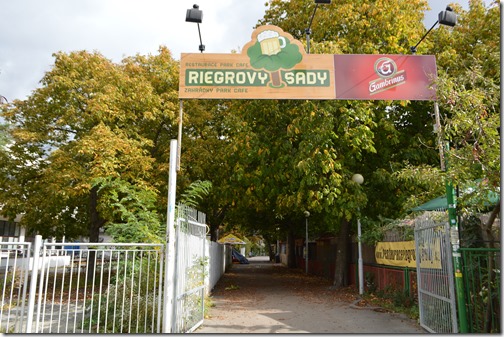
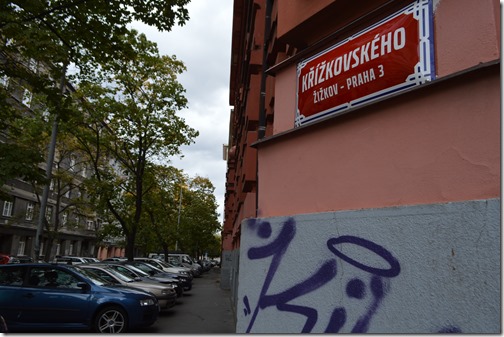
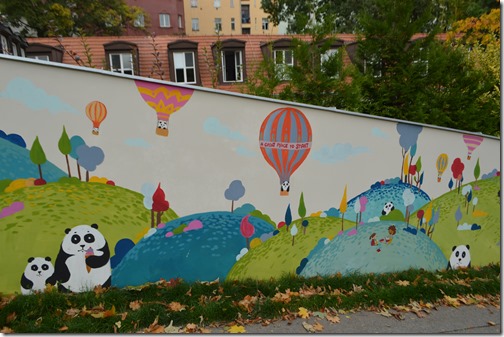
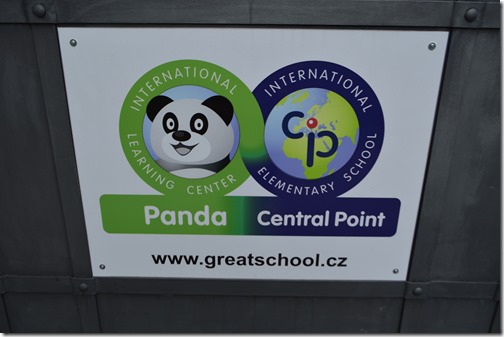
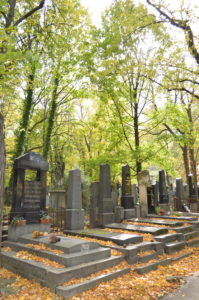
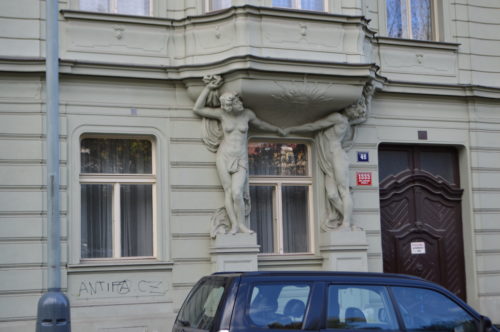
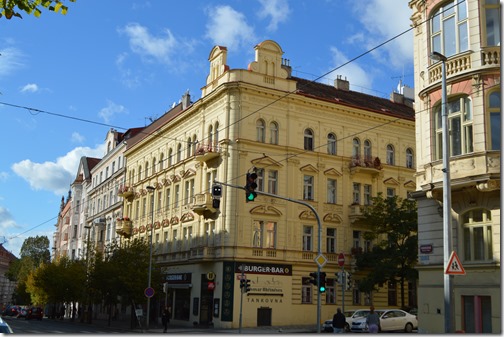
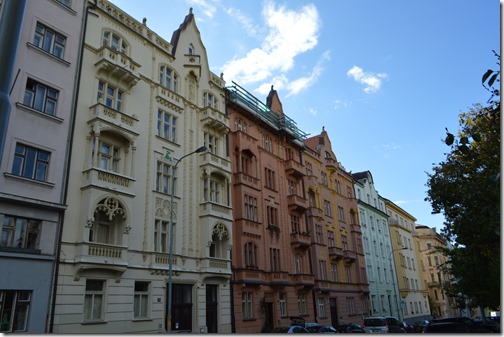
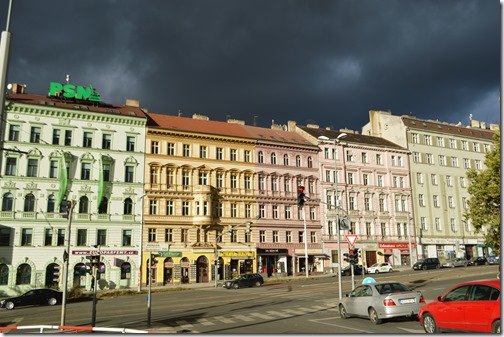
3 Comments
Comments are closed.